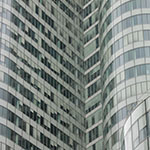Euroacademia Conferences
 Europe Inside-Out: Europe and Europeanness Exposed to Plural Observers (9th Edition) April 24 - 25, 2020
Europe Inside-Out: Europe and Europeanness Exposed to Plural Observers (9th Edition) April 24 - 25, 2020 Identities and Identifications: Politicized Uses of Collective Identities (9th Edition) June 12 - 13, 2020
Identities and Identifications: Politicized Uses of Collective Identities (9th Edition) June 12 - 13, 2020 8th Forum of Critical Studies: Asking Big Questions Again January 24 - 25, 2020
8th Forum of Critical Studies: Asking Big Questions Again January 24 - 25, 2020 Re-Inventing Eastern Europe (7th Edition) December 13 - 14, 2019
Re-Inventing Eastern Europe (7th Edition) December 13 - 14, 2019 The European Union and the Politicization of Europe (8th Edition) October 25 - 26, 2019
The European Union and the Politicization of Europe (8th Edition) October 25 - 26, 2019 Identities and Identifications: Politicized Uses of Collective Identities (8th Edition) June 28 - 29, 2019
Identities and Identifications: Politicized Uses of Collective Identities (8th Edition) June 28 - 29, 2019 The European Union and the Politicization of Europe (7th Edition) January 25 - 26, 2019
The European Union and the Politicization of Europe (7th Edition) January 25 - 26, 2019 7th Forum of Critical Studies: Asking Big Questions Again November 23 - 24, 2018
7th Forum of Critical Studies: Asking Big Questions Again November 23 - 24, 2018 Europe Inside-Out: Europe and Europeanness Exposed to Plural Observers (8th Edition) September 28 - 30, 2018
Europe Inside-Out: Europe and Europeanness Exposed to Plural Observers (8th Edition) September 28 - 30, 2018 Identities and Identifications: Politicized Uses of Collective Identities (7th Edition) June 14 - 15, 2018
Identities and Identifications: Politicized Uses of Collective Identities (7th Edition) June 14 - 15, 2018
Design Education: New Challenges for the 21st Century
-
-

-
Presentation speakers
- Joel Olivares, Universidad Gestalt de Diseño, Mexico
Abstract:
At the beginning of the second decade of this new century, regarding the construction of the human habitat, we are still caught in many crossroads, uncertainties and repetitions of obsolete models of which already Le Corbousier begged that it finally would be intended, that through the rear mirror one can not look into the future. And this sentence has has not been understood in all the profoundness of its implications. Global business and its method of “privatising” even the air we are breathing concentrates the riches in few points and privileged groups of persons, leaving the rest in a model of slavery working for the payment of this model for some thirty years before, after some thirty years, being thrown away by the society they served. The Utopia of industrialisation has only brought us trash and illnesses, some of which provoked. We can be part of a privileged group serving its objectives with designs for museums. But what if we travel through the rest of the world recognising the lack of the least minimal services to live? The principal challenge for this century for all of us involved in the creation of objects and structures of the habitat, including everything from urbanism to graphic communications, consists of the creation of efficient models in line with the environment and socially responsible: Sustainable Cities, secure and at a pedestrian human scale, bio-climatical architectures, recyclable objects not damaging the environment. But also confront problems regarding water, energy, mobility and education for the 21st century. Many examples exist: Experiments and initiatives demonstrating the feasibility of the creation of a better environment. But these need to be turned into goals and milestones. Therefore it is necessary to know, select and reproduce in other places, until standards, laws and procedures exist, verifying and modifying ther human habitat. In Turkey a construction standard requires new buildings to use solar heating in order to reduce dependence on energy. This translates into a reduction by millions of barrels of petroleum and less contamination of the atmosphere. On the other hand, in Spain is a war going on from the energy administration against the private alternative energy entrepreneurs, to eliminate subsidies promised in order to induce them into the costly investments. Now, it is even requested to impose a tax on the use of the sunlight. And Monsanto requires peasants to stop using natural seeds, in order not to infest the land seeded with genetically modified plants. The world has become complex, but designers are requested to assume responsibility for the creation of a better world.
Any problem of any kind is to be resolved by Design, and Design produces objects. This is why one has to start from scratch, incorporating the humanist focus into Design education. And this is the model, which to which we are dedicated since already 40 years. -
Related Presentations

Hybrid Creatures: Examining Identity Politics in Diasporic Art
- Tehezeeb Moitra

















